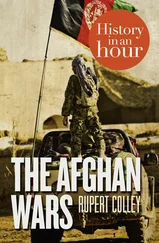Her Majesty's Government refused absolutely to have anything to do with Zubehr. They declined to allow the Egyptian Government to employ him. They would not entertain the proposal, and scarcely consented to discuss it. The historians of the future may occupy their leisure and exercise their wits in deciding whether the Ministers and the people were right or wrong; whether they had a right to indulge their sensitiveness at so terrible a cost; whether they were not more nice than wise; whether their dignity was more offended by what was incurred or by what was avoided.
General Gordon has explained his views very clearly and concisely: 'Had Zubehr Pasha been sent up when I asked for him, Berber would in all probability never have fallen, and one might have made a Soudan Government in opposition to the Mahdi. We choose to refuse his coming up because of his antecedents in re slave trade; granted that we had reason, yet, as we take no precautions as to the future of these lands with respect to the slave trade, the above opposition seems absurd. I will not send up 'A' because he will do this, but I will leave the country to 'B', who will do exactly the same (Major-General Gordon, JOURNALS AT KHARTOUM.)
But if the justice of the decision is doubtful, its consequences were obvious. Either the British Government were concerned with the Soudan, or they were not. If they were not, then they had no reason or right to prohibit the appointment of Zubehr. If they were, they were bound to see that the garrisons were rescued. It was an open question whether Great Britain was originally responsible for the safety of the garrisons. General Gordon contended that we were bound to save them at all costs, and he backed his belief with his life. Others may hold that Governments have no right to lay, or at any rate must be very judicious in the laying of burdens on the backs of their own countrymen in order that they may indulge a refined sense of chivalry towards foreigners. England had not misgoverned the Soudan, had not raised the revolt or planted the garrisons. All that Egypt had a right to expect was commiseration. But the moment Zubehr was prohibited the situation was changed. The refusal to permit his employment was tantamount to an admission that affairs in the Soudan involved the honour of England as well as the honour of Egypt. When the British people—for this was not merely the act of the Government—adopted a high moral attitude with regard to Zubehr, they bound themselves to rescue the garrisons, peaceably if possible, forcibly if necessary.
With their refusal to allow Zubehr to go to the Soudan began the long and miserable disagreement between the Government and their envoy. Puzzled and disturbed at the reception accorded to his first request, Gordon cast about for other expedients. He had already stated that Zubehr was 'the only chance.' But it is the duty of subordinates to suggest other courses when those they recommend are rejected; and with a whole-hearted enthusiasm and unreserved loyalty the General threw himself into the affair and proposed plan after plan with apparent hope.
Gordon considered that he was personally pledged to effect the evacuation of Khartoum by the garrison and civil servants. He had appointed some of the inhabitants to positions of trust, thus compromising them with the Mahdi. Others had undoubtedly been encouraged to delay their departure by his arrival. He therefore considered that his honour was involved in their safety. Henceforward he was inflexible. Neither rewards nor threats could move him. Nothing that men could offer would induce him to leave Khartoum till its inhabitants were rescued. The Government on their side were equally stubborn. Nothing, however sacred, should induce them to send troops to Khartoum, or in any way involve themselves in the middle of Africa. The town might fall; the garrison might be slaughtered; their envoy—But what possibilities they were prepared to face as regards him will not be known until all of this and the next generation are buried and forgotten.
The deadlock was complete. To some men the Foreign Office might have suggested lines of retreat, covered by the highest official praise, and leading to preferment and reward. Others would have welcomed an order to leave so perilous a post. But the man they had sent was the one man of all others who was beyond their control, who cared nothing for what they could give or take away. So events dragged on their wretched course. Gordon's proposals became more and more impracticable as the best courses he could devise were successively vetoed by the Government, and as his irritation and disappointment increased. The editor of his Journals has enumerated them with indignant care. He had asked for Zubehr. Zubehr was refused. He had requested Turkish troops. Turkish troops were refused. He had asked for Mohammedan regiments from India. The Government regretted their inability to comply. He asked for a Firman from the Sultan to strengthen his position. It was 'peremptorily refused.' He proposed to go south in his steamers to Equatoria. The Government forbade him to proceed beyond Khartoum. He asked that 200 British troops might be sent to Berber. They were refused. He begged that a few might be sent to Assuan. None were sent. He proposed to visit the Mahdi himself and try to arrange matters with him personally. Perhaps he recognised a kindred spirit. The Government in this case very naturally forbade him.
At last the quarrel is open. He makes no effort to conceal his disgust. 'I leave you,' he says, the 'indelible disgrace of abandoning the garrisons.' (Major-General Gordon to Sir E. Baring (telegraphic), received at Cairo April 16.) Such abandonment is, he declares, 'the climax of meanness.' (Ibid, despatched April 8.) He reiterates his determination to abide with the garrison of Khartoum. 'I will not leave these people after all they have gone through.' (Major-General Gordon to Sir E. Baring, Khartoum, July 30; received at Cairo October 15.) He tosses his commission contemptuously from him: 'I would also ask her Majesty's Government to accept the resignation of my commission.' (Major-General Gordon to Sir E. Baring (telegraphic), Khartoum, March 9.) The Government 'trust that he will not resign,' (Earl Granville to Sir E. Baring, Foreign Office, March 13.) and his offer remains in abeyance. Finally, in bitterness and vexation, thinking himself abandoned and disavowed, he appeals to Sir Evelyn Baring personally: 'I feel sure, whatever you may feel diplomatically, I have your support—and that of every man professing himself a gentleman—in private'; (Major-General Gordon to Sir E. Baring (telegraphic), received at Cairo April 16.) and as a last hope he begs Sir Samuel Baker to appeal to 'British and American millionaires' to subscribe two hundred thousand pounds to enable him to carry out the evacuation without, and even in spite of, the Governments of Cairo and London; and Sir Samuel Baker writes a long letter to the Times in passionate protest and entreaty.
Such are the chief features in the wretched business. Even the Blue-books in their dry recital arouse in the reader painful and indignant emotions. But meanwhile other and still more stirring events were passing outside the world of paper and ink.
The arrival of Gordon at Khartoum had seriously perplexed and alarmed Mohammed Ahmed and his Khalifas. Their following was discouraged, and they themselves feared lest the General should be the herald of armies. His Berber proclamation reassured them, and as the weeks passed without reinforcements arriving, the Mahdi and Abdullah, with that courage which in several great emergencies drew them to the boldest courses, determined to put a brave face on the matter and blockade Khartoum itself. They were assisted in this enterprise by a revival of the patriotic impulse throughout the country and a consequent stimulus to the revolt. To discover the cause it is necessary to look to the Eastern Soudan, where the next tragedy, after the defeat of Hicks, is laid.
Читать дальше












